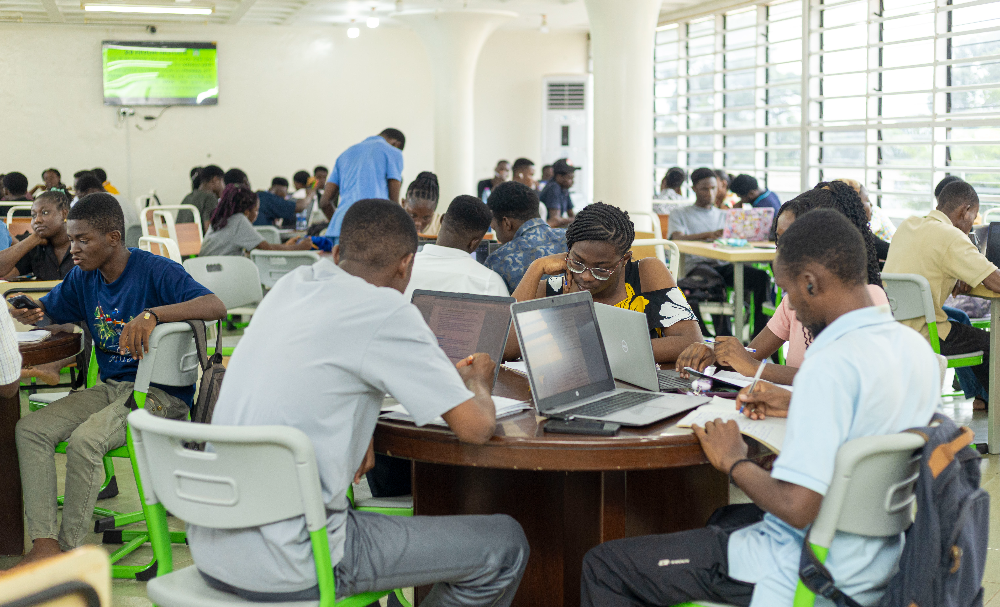As the semester winds down and exam season approaches at KNUST, campus life is taking on a new rhythm, one defined by determination, late-night study sessions, and a renewed reliance on university library resources.
With the recent opening of the KNUST Library Mall and the university’s commitment to running 24-hour study services, students are finding fresh ways to prepare for their exams.
From main to faculty and department libraries with stronger internet access and high-powered machines at the ICT Centre, support systems are falling into place to match the academic intensity of the season.
The newly opened Library Mall has become the heartbeat of exam prep. Bright, airy, and welcoming, it's quickly filled with students looking for a conducive study environment, and it’s already making a big difference.
“The library is much better than any other place,” said Emmanuel Kawe, a first-year Computer Science student. “It’s more conducive, and most of my studies require watching videos online to better understand concepts. The library has a better internet connection, and the 24-hour service suits everyone’s study time.”
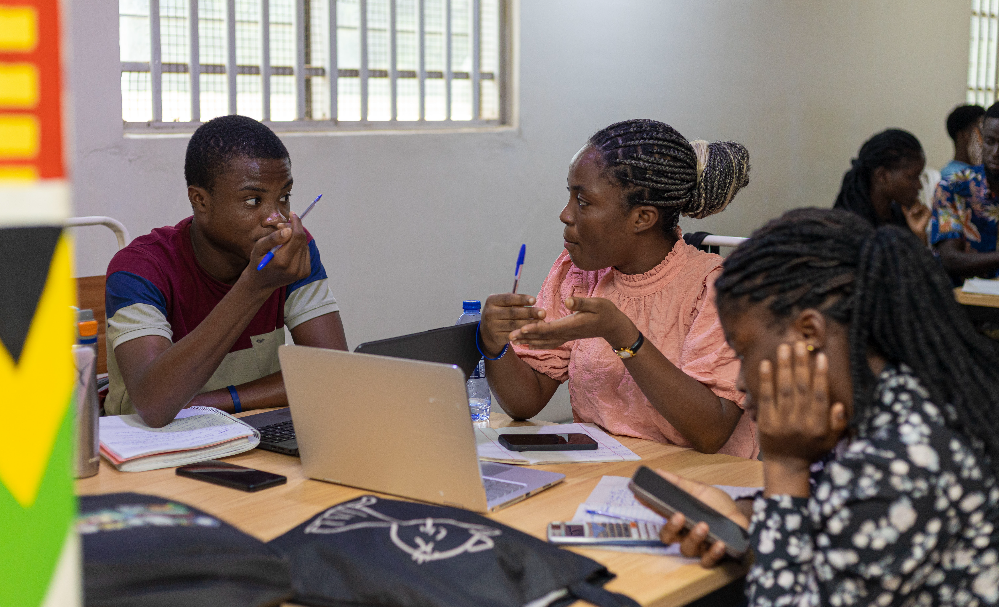
For many students, it’s not just about finding a place to sit, it’s about finding a space that encourages focus.
Belinda Koomson, an undergraduate in Procurement and Supply Chain Management, shared, “The library has been a good support. We can sit for group studies to better understand what we’ve been taught and as you can see, I’m here with my friend. Even the lighting system calls you to come here, it’s always clear and very comfortable.”
According to Mr. Emmanuel Baiden, the Principal Library Assistant in charge of the Library Mall, the response has been overwhelming since its opening on March 31st.
“On the first day, the whole place was full. We have 1,120 seats and recorded 800 students. We’ve provided rooms to suit every learning style, whether collaborative or individual. Although books haven’t been installed yet, students can access electronic books and journals. The Vice-Chancellor also gave us 270 laptops, and our staff assist students in accessing resources,” he said.
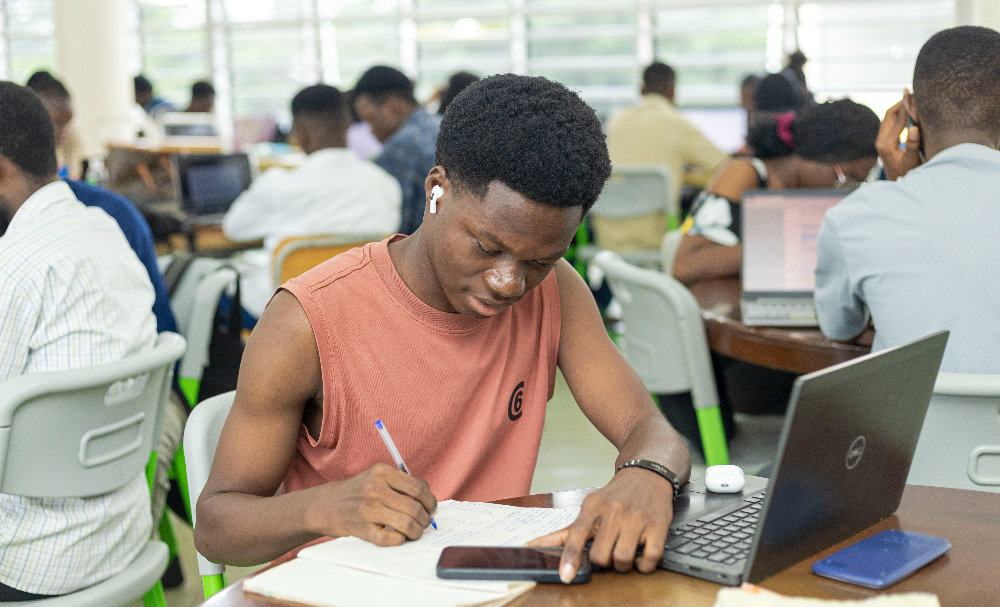
The Mall currently operates with security and staff on hand, and while it hasn’t begun 24-hour operations yet, plans are in motion once backup power and logistics are secured.
Dr. Richard Bruce Lamptey, Deputy University Librarian, noted, “We had 600 people on the first day. The learning mall draws students from Ayeduase and Gaza hostels. You can see the students are happy, it has a serene environment for learning,’’
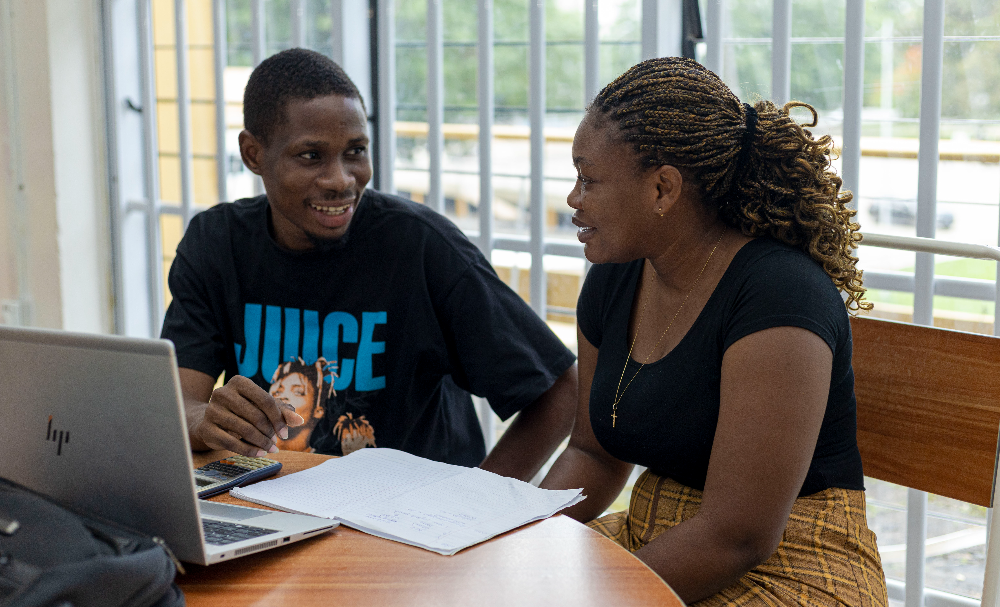
Meanwhile, the main library, Prempeh II has also extended its services to 24 hours, giving students more flexibility to tailor their revision schedules. For many, the extended hours are not just helpful they’re essential.
“If you don’t prepare enough for exams, you’ll fail,” said Paul Owusu Debrah, a second-year Landscape Design and Management student. “The library’s services are making learning easier. I’m connected to the Wi-Fi, and it’s helping me research more.”
Tucked on the first floor of the Prempeh II Library, the ICT Centre under the University Information Technology Services (UITS) is another critical lifeline, especially for students in engineering and design programs. The centre provides access to high-end computers capable of running complex software that most personal laptops can’t handle.
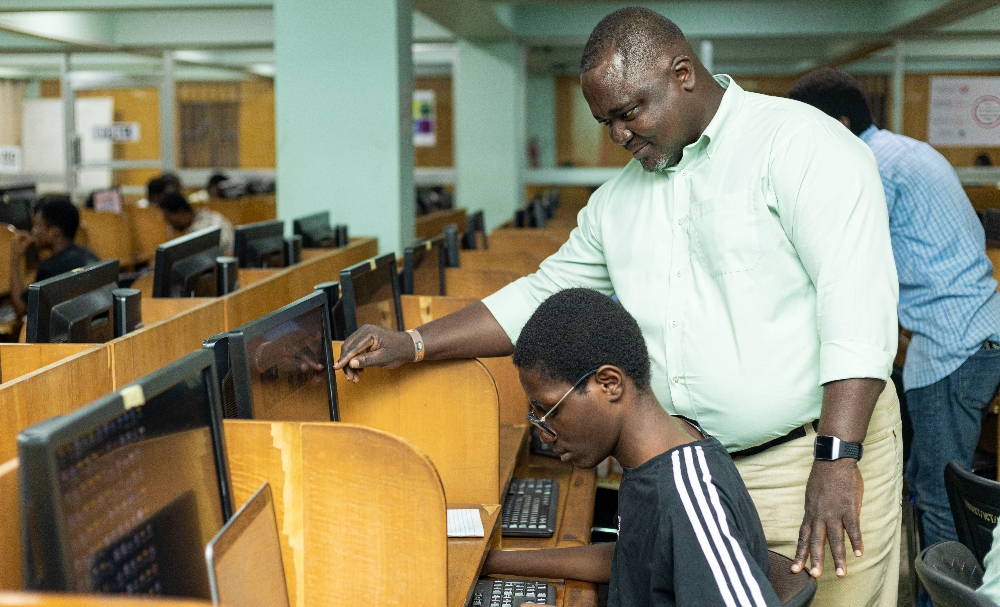
Mr. Rapheal Amofa Baah, a Senior ICT Assistant at the centre explained, “We’ve extended operating hours so students can come and practice what they’ve learned and use the machines for research. We have high-end machines for students with or without laptops, for AutoCAD, SolidWorks, and more.”
Thomas Boadi, an Automobile Engineering student, is a regular visitor. “I came here to use the machines to run a project. My laptop can’t run them, so I come here every day.”
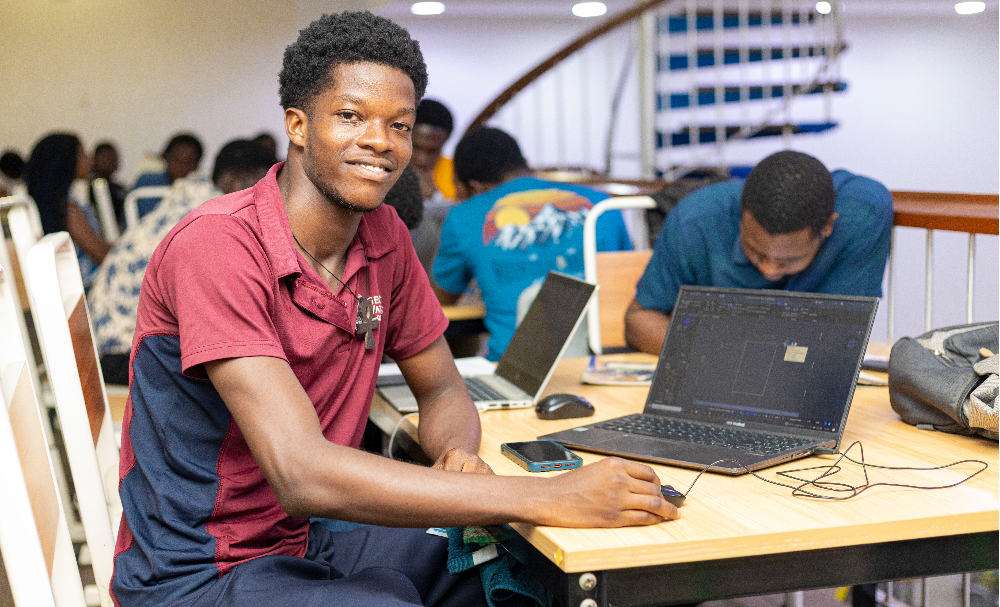
With exams around the corner, KNUST has pulled out all the stops, expanding study spaces, ensuring 24/7 access, uninterrupted internet connections and providing cutting-edge tech support so whether it’s a first-year student streaming learning materials at midnight or an engineer running simulations, the university’s resources are ensuring no one gets left behind.
As Mr. Baiden puts it: "We’ve provided good enough and now it’s up to the students to make the most of it."
| Story by Edith Asravor (URO) | Photos by Emmanuel Offei (URO) |








